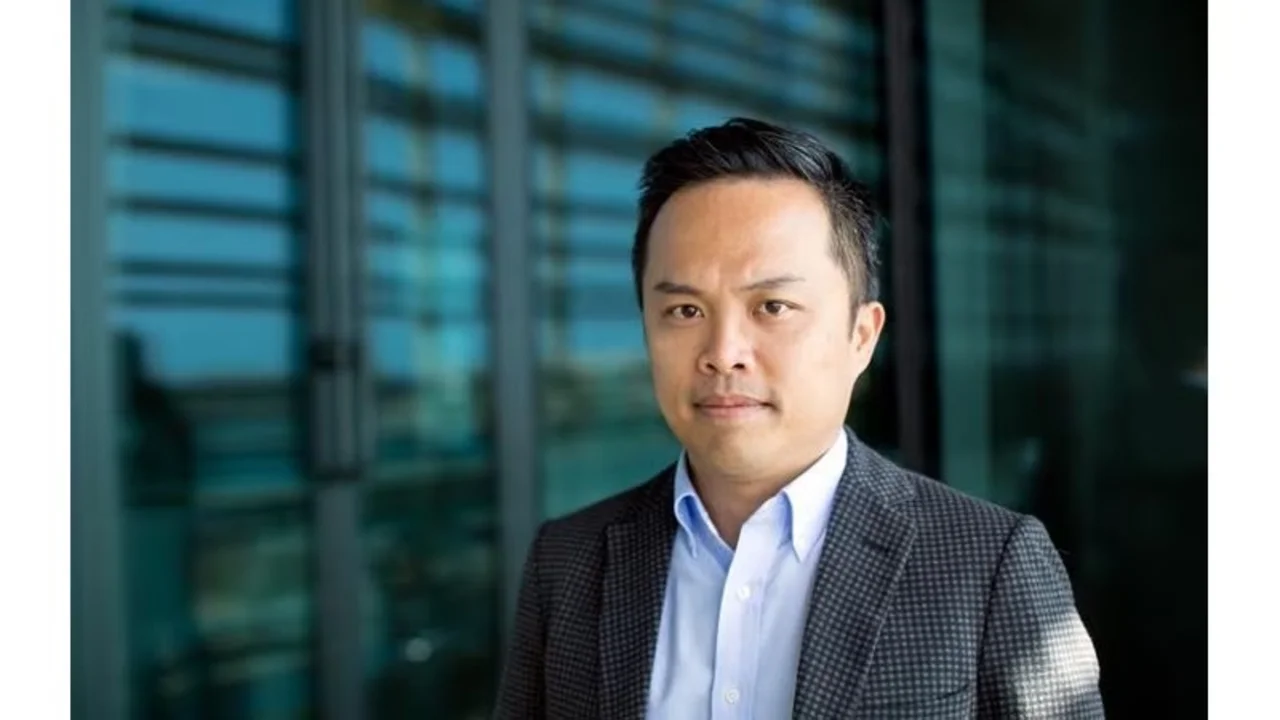
Jr-Hau He elected SPIE Fellow
Jr-Hau He, KAUST associate professor of electrical engineering, has recently been elected as an SPIE Fellow for his achievements in solar cells, photodetectors and semiconductor optics research. SPIE, the international society for optics and photonics, annually recognizes society members who have made significant scientific and technical contributions in the multidisciplinary fields of optics, photonics and imaging, and for their outstanding technical contributions and service to SPIE. He and 72 additional fellows of the society will be promoted later this year.
About
-By David Murphy
Jr-Hau He, KAUST associate professor of electrical engineering, has recently been elected as an SPIE Fellow for his achievements in solar cells, photodetectors and semiconductor optics research. SPIE, the international society for optics and photonics, annually recognizes society members who have made significant scientific and technical contributions in the multidisciplinary fields of optics, photonics and imaging, and for their outstanding technical contributions and service to SPIE. He and 72 additional fellows of the society will be promoted later this year.
He is based in the University's Computer, Electrical and Mathematical Science and Engineering Division (CEMSE) and is well-known in the optics community, with his research work published in many high-impact journals.
"I have been fortunate enough to be advised/supported/mentored by very supportive and wise leadership and colleagues and talented students in CEMSE and at KAUST. I consider this a rewarding outcome that I have achieved for our team, as we have worked hard since I had started my independent career in 2007," he said.
A collaborative environment
He joined KAUST in the summer of 2014 after obtaining his B.S. (1999) and Ph.D. (2005) from National Tsing Hua University, Taiwan. At KAUST, He and his research group focus on the development of transparent and flexible electronics using novel devices based on nanomaterials, including solar and photodetector, LEDs and memory devices. He is also interested in solar energy and efforts to understand light scattering and trapping in nanostructured material and designing next-generation solar cells.
"We focus on the photon management on the solar cells and photodetectors for boosting their efficiency by controlling the light-matter interaction," He said.
Jr-Hau He, KAUST associate professor of electrical engineering, stands with his Nano Energy Lab research group on campus. File photo.
He believes that the research environment at KAUST is extremely beneficial to all forms of scientific research.
"I believe that environment makes us who we are. We have enthusiastic faculty and eager students to work with, and we have a great research environment and team to support our research. Everything I have available to me at KAUST definitely helps us to achieve our research excellence," he noted.
Creating future KAUST leaders
He founded the SPIE student chapter at KAUST and serves as the faculty adviser to the group. Prior to joining KAUST, he also served as the faculty adviser of the student chapter at the National Taiwan University. He is excited about the continued growth of the chapter and feels that it will create future industry, government and academic leaders.
"It always makes me feel excited to grow with the students, which was also my intention in establishing the SPIE student chapter at KAUST. It is our commitment to raising awareness and interest in optics and photonics on campus," he emphasized. "For creating leaders in industry, government, and academics in the photonics and optoelectronics, SPIE student chapters are involved in constantly inspiring KAUST students with a variety of seminar on the photonics and optoelectronics, including the SPIE Visiting Lecturer."
'Tremendous progress'
Outside of his role as the SPIE student chapter faculty advisor, He also serves as a visiting lecturer for the society, a duty that he holds in the highest regard.
"The role of the SPIE visiting lecturer is to promote photonics and optoelectronics by giving the distinguished lectures in different institutes. I also constantly serve the conference committee sponsored by SPIE. All involvement brings the opportunity for me to interact with world-class scientists and engineers in optics and photonics," He outlined.
SPIE, which was founded in 1955 as a nonprofit organization dedicated to advancing light-based technologies, praised He and his ongoing research.
"He has devoted himself to photon management for boosting the efficiency and performance of optical devices for over 18 years with numerous outstanding scientific achievements," SPIE noted. "The results have led to several world-record demonstrations, particularly in solar cells and photodetectors. His deep understanding of interactions of electromagnetic wave with device surfaces allows him to conduct comprehensive investigation in surface effects on the device performance."
"He has made tremendous progress in nanostructured solar devices with an emphasis on concurrent optical and electrical engineering. Design rules he established have helped improve the rational employment of nanotechnology in solar cells to make them more competitive in the energy market," the organization also stated.